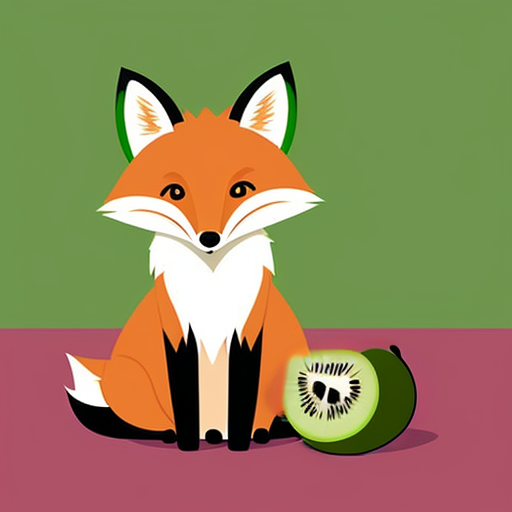like town names are very unique; you probably couldn’t find the same 2 towns next to each other very often
but mark steve chris hannah claire laura etc are all very common across the anglosphere
At one time seven people worked in my company and three of them were named Tim. Then I interviewed a new employee and his name was Tim. Honestly it actually weighed in my decision to have 4 Tims in a company of 8 employees.
I’d imagine that resulted in a few funny episodes.
He ultimately was not qualified for other reasons and did not get hired. But I did think thru the interview process it would start to look stupid if some client phoned in and asked for Tim. I would have to figure out which one he needed out of half our employees.
Same problem, but with Karthik
Just call them Tim 1, Tim 2, Tim 3 and Tim 4 based on time of employment
Based on tim of employment.
Because given names used to be pretty much unique in each village and you wouldn’t travel much, that’s why only nobility had surnames and regular people didn’t. There’s no need to differentiate which Chris you mean if there’s only one Chris in the village.
They absolutely had people with the same name in the same village. But they had nicknames, and this is also where a lot of family names come from.
Limpy Chris, Chris the smith, Lying Chris, small Chris, Brad’s son Chris etc.
Also, countries (at least in Europe) didn’t really keep track of people but churches did. You couldn’t give someone a name that the village priest refused to baptise them as (I hope that’s the proper English name for it).
deleted by creator
deleted by creator
There are 67 Springfields in the US.
Now, I’m not a countamatician, but that sounds like more than the 50 states (and fourteen territories).
Who’s double-dipping?
Apparently Ohio has 11 townships called Springfield. Googling it, I see a site for one in Clark County, one in Hamilton County, one in Richland County, one in Williams County, one in Summit County, and that’s as far as I felt like going.
Yea, pretty much the same UK town names are repeated across the country, sometimes even more than one in a state.
I live within 45 minutes of two towns named Troy and two towns named O’Fallon. There are probably more with same names but off the top of my head there are 2 pairs I could think of in 5 seconds of thought.
Names aren’t that unique, we refuse them a lot because we lean towards what is familiar
MO/IL? That sounds St. Louis adjacent lol
Yep St Louis
That’s an American perspective, aside from a few exceptions (variations of forum, fort, etc.), it’s not as common in Europe
It’s extremely common in Germany. Take Münster for example, there are at least 9 cities and towns with that name. Others include Berlin, Hagen, Frankfurt, Hamburg, Freiburg, and so on. It’s such an issue when trying to trace down ancestry as many records only include the city or town and not the state / region.
I was gonna post this about Britain https://www.telegraph.co.uk/news/features/10905575/Britains-doppelganger-place-names.html but then I remembered that they’re not in Europe any more
Still Europe but not Eu.
Nope, not even Europe. They literally cut them off and they’re an island now!
How are they not part of Europe?

It’s a joke, buddy. They’re an island, they did Brexit, I made a joke about it, the joke made a whooshing sound as it went right over your head.
Removed by mod
Are you sure? It’s quite common with town names. Hell, there is 105 Switzerlands in Germany!
Well the OP didn’t say he didn’t want American perspective and America is part of the Anglosphere since we speak English and are a former British colony
Because Christians, basically. Religion is a massive factor in what people think is a “normal” name, for their baby, their town, or their dog.
Trends come and go. You can look at graphs for how popular names change over time, it’s really something.
I think this is a great question. I’m going to take a stab at it. I’m also going to talk about it in the US, as I’m less familiar with other English speaking countries’ town names and am not at all familiar with the way other cultures name their towns.
First, a lot of US place names come from local indigenous culture. Indigenous languages have a lot of variability. I’m pretty sure every state has them, and the names will vary based on the local languages. Many of the state names have similar origins as well.
Second, many towns were named after people - either for the founders or for a notable person. The US Census Bureau estimates there’s about 150,000 common last names in the US, and only about 5100 common first names. Because towns named after people tend to use their family name (although it might be cool to live in a town named Steve), they’re drawing from a much larger pool than the first names.
Third, and related to that, last names stick around longer. First names go through fashions. Every generation has its own trendy names, which further reduces variability for the population at any given time. There aren’t a lot of girls getting named Elenor or Eunice these days, I’d suspect. We tend to mostly know people around our own age, give or take a decade or so, and therefore the number of first names you tend to encounter in your social circles will be small. Couple that with the fact that people living in culturally homogenous areas are very unlikely to run into a lot of foreign first names. I think your chances of being friends with a Puneet or a Rupak are fairly small if you’re from a small midwestern town, versus James or Scott.
So, basically, I hypothesize that it’s because they’re sourced and sampled differently.
It’s a bunch of factors. Other posters highlighted some. Others are:
- You’re far more likely to name a person after another than a town after another. (Exceptions happen, I know.)
- Identical personal names for people can be disambiguated with patronymics and surnames, but usually there isn’t much of that for towns, except maybe “in [insert the name of the country controlling that city]”.
- At least in Abrahamic religions, the name also plays a role to highlight that the person is supposed to follow that religion.
- Names follow trends, People tend to die rather quickly, so you don’t see often the “old” trends. In the meantime that town might follow some town-naming trend from 300y ago.
Regarding point 1, in New England at least you can visit half of Europe within a few hours of driving if you go by town names.
Yup, there are exceptions, like placenames named after other placenames, even in the old world. (Cartagena being named after Carthago, England [indirectly] after Anglia, even Byzantium was shortly called Roma Nova by Constantine.) Even then, those are more like exceptions, not the rule.










